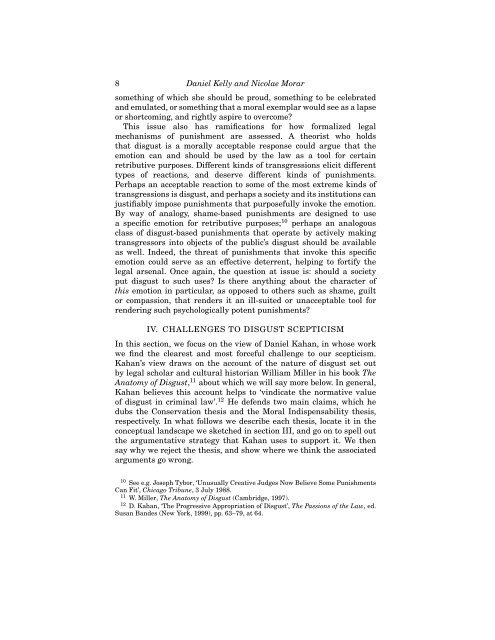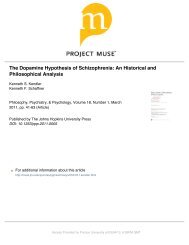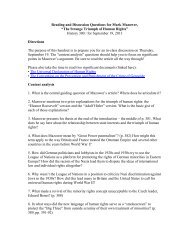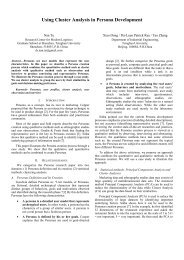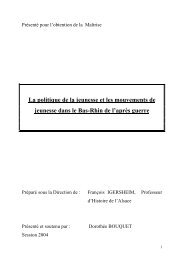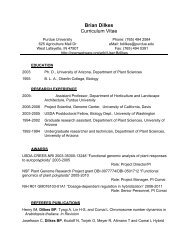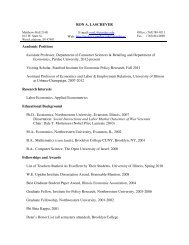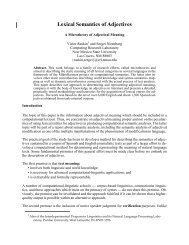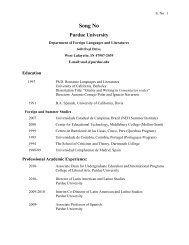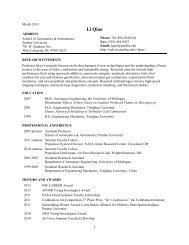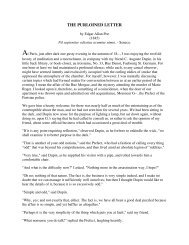Against the Yuck Factor - Career Account Web Pages - Purdue ...
Against the Yuck Factor - Career Account Web Pages - Purdue ...
Against the Yuck Factor - Career Account Web Pages - Purdue ...
You also want an ePaper? Increase the reach of your titles
YUMPU automatically turns print PDFs into web optimized ePapers that Google loves.
8 Daniel Kelly and Nicolae Morar<br />
something of which she should be proud, something to be celebrated<br />
and emulated, or something that a moral exemplar would see as a lapse<br />
or shortcoming, and rightly aspire to overcome?<br />
This issue also has ramifications for how formalized legal<br />
mechanisms of punishment are assessed. A <strong>the</strong>orist who holds<br />
that disgust is a morally acceptable response could argue that <strong>the</strong><br />
emotion can and should be used by <strong>the</strong> law as a tool for certain<br />
retributive purposes. Different kinds of transgressions elicit different<br />
types of reactions, and deserve different kinds of punishments.<br />
Perhaps an acceptable reaction to some of <strong>the</strong> most extreme kinds of<br />
transgressions is disgust, and perhaps a society and its institutions can<br />
justifiably impose punishments that purposefully invoke <strong>the</strong> emotion.<br />
By way of analogy, shame-based punishments are designed to use<br />
aspecificemotionforretributivepurposes; 10 perhaps an analogous<br />
class of disgust-based punishments that operate by actively making<br />
transgressors into objects of <strong>the</strong> public’s disgust should be available<br />
as well. Indeed, <strong>the</strong> threat of punishments that invoke this specific<br />
emotion could serve as an effective deterrent, helping to fortify <strong>the</strong><br />
legal arsenal. Once again, <strong>the</strong> question at issue is: should a society<br />
put disgust to such uses? Is <strong>the</strong>re anything about <strong>the</strong> character of<br />
this emotion in particular, as opposed to o<strong>the</strong>rs such as shame, guilt<br />
or compassion, that renders it an ill-suited or unacceptable tool for<br />
rendering such psychologically potent punishments?<br />
IV. CHALLENGES TO DISGUST SCEPTICISM<br />
In this section, we focus on <strong>the</strong> view of Daniel Kahan, in whose work<br />
we find <strong>the</strong> clearest and most forceful challenge to our scepticism.<br />
Kahan’s view draws on <strong>the</strong> account of <strong>the</strong> nature of disgust set out<br />
by legal scholar and cultural historian William Miller in his book The<br />
Anatomy of Disgust, 11 about which we will say more below. In general,<br />
Kahan believes this account helps to ‘vindicate <strong>the</strong> normative value<br />
of disgust in criminal law’. 12 He defends two main claims, which he<br />
dubs <strong>the</strong> Conservation <strong>the</strong>sis and <strong>the</strong> Moral Indispensability <strong>the</strong>sis,<br />
respectively. In what follows we describe each <strong>the</strong>sis, locate it in <strong>the</strong><br />
conceptual landscape we sketched in section III, and go on to spell out<br />
<strong>the</strong> argumentative strategy that Kahan uses to support it. We <strong>the</strong>n<br />
say why we reject <strong>the</strong> <strong>the</strong>sis, and show where we think <strong>the</strong> associated<br />
arguments go wrong.<br />
10 See e.g. Joseph Tybor, ‘Unusually Creative Judges Now Believe Some Punishments<br />
Can Fit’, Chicago Tribune, 3July1988.<br />
11 W. Miller, The Anatomy of Disgust (Cambridge, 1997).<br />
12 D. Kahan, ‘The Progressive Appropriation of Disgust’, The Passions of <strong>the</strong> Law, ed.<br />
Susan Bandes (New York, 1999), pp. 63–79, at 64.


